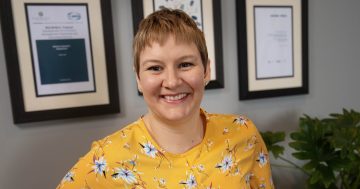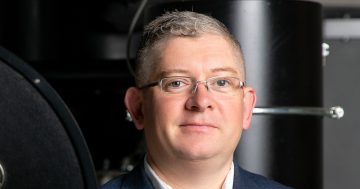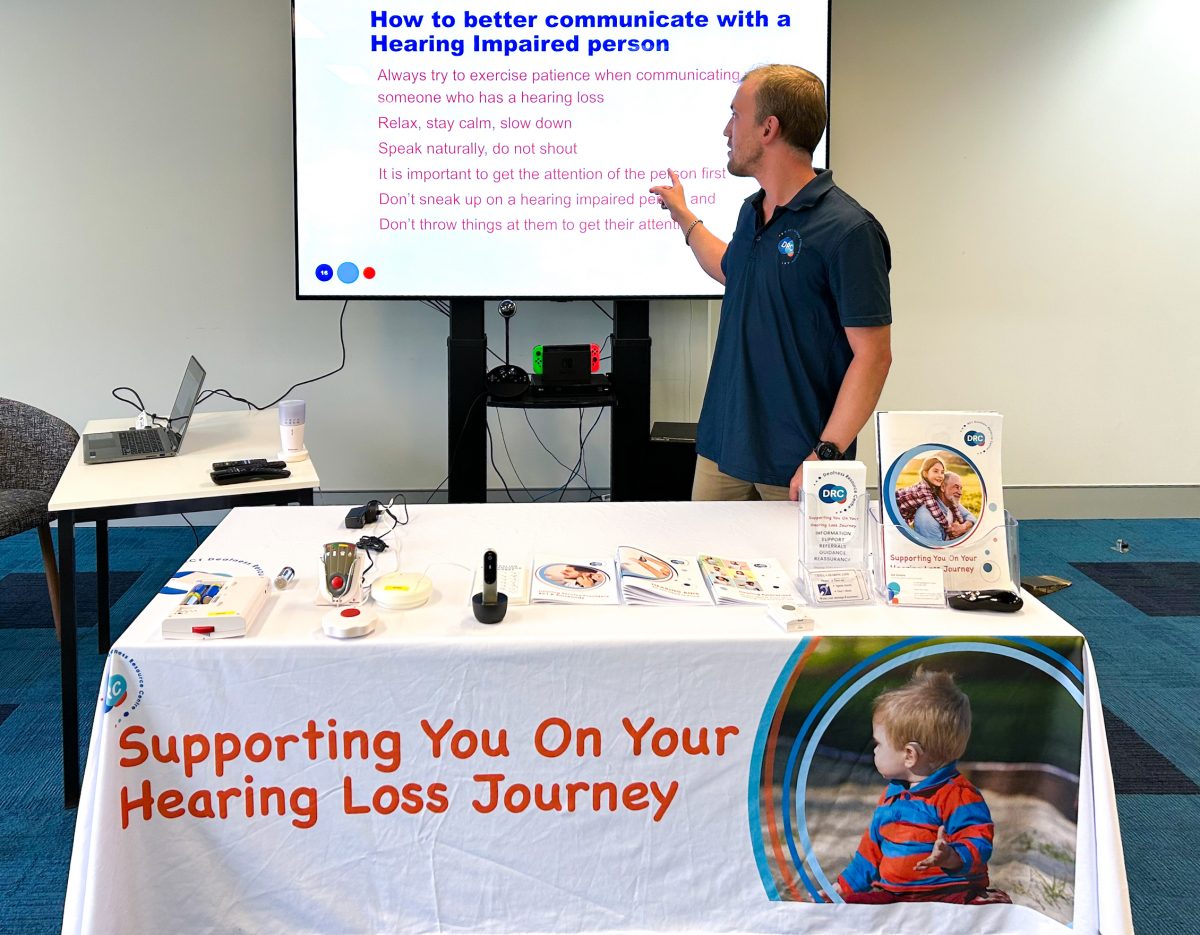
Joe Symons from the Deafness Resource Centre providing corporate awareness training. Photo: Deafness Resource Centre.
With profound hearing loss, Stephen Musgrove has encountered a spectrum of understanding from workplaces.
“I have worked at places that have told me, in no uncertain terms, that when my hearing loss became severe, I’d be out of a job,” he said.
“Strictly speaking, no, I don’t think that’s legal, but it does happen.”
On the other end of the spectrum is his current workplace, Canberra consultancy firm Parbery, which brought in the Deafness Resource Centre (DRC) to do a workplace assessment.
The DRC identified several opportunities to improve Stephen’s ability to participate fully in the workplace and arranged for him to trial assistive technology which Parbery then installed.
Parbery also folded DRC’s corporate awareness training into its mandatory training program for staff.
It meant a great deal to Stephen, whose hearing loss stemmed from a genetic condition.
“My mum had to leave the workforce because she went deaf,” he said.
“She worked in an environment where people decided it wasn’t worth their time to try a bit harder.
“Having a company that does has changed my outlook.”
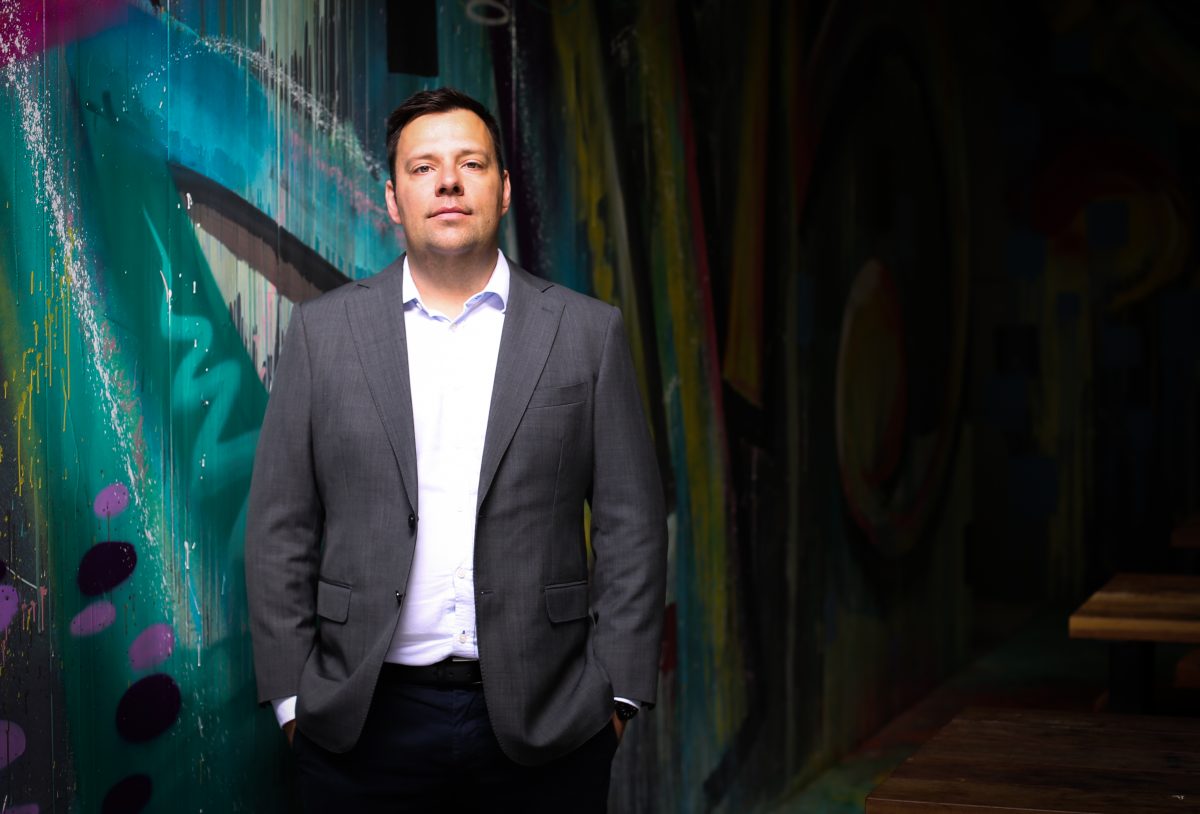
Small provisions for his hearing loss have dramatically improved things in the workplace for Stephen Musgrove. Photo: Parbery.
Stephen said a lack of awareness of simple communication techniques could greatly hinder workplace productivity and engagement of people with hearing loss.
“I’ve been at workplaces where people aren’t aware either through me not wanting to speak up or others not wanting to change how they work, which has led to confrontation or disengagement,” he said.
“At Parbery people have actively tried to make sure I can follow and contribute to discussions.
“For example, by changing the location where things take place to a room with less background noise. Or stopping workshops to remind people to speak one at a time. Or even just ensuring they don’t start speaking to me when my back is turned.
“These are small changes individuals can make that can have a dramatic effect on how I work.”
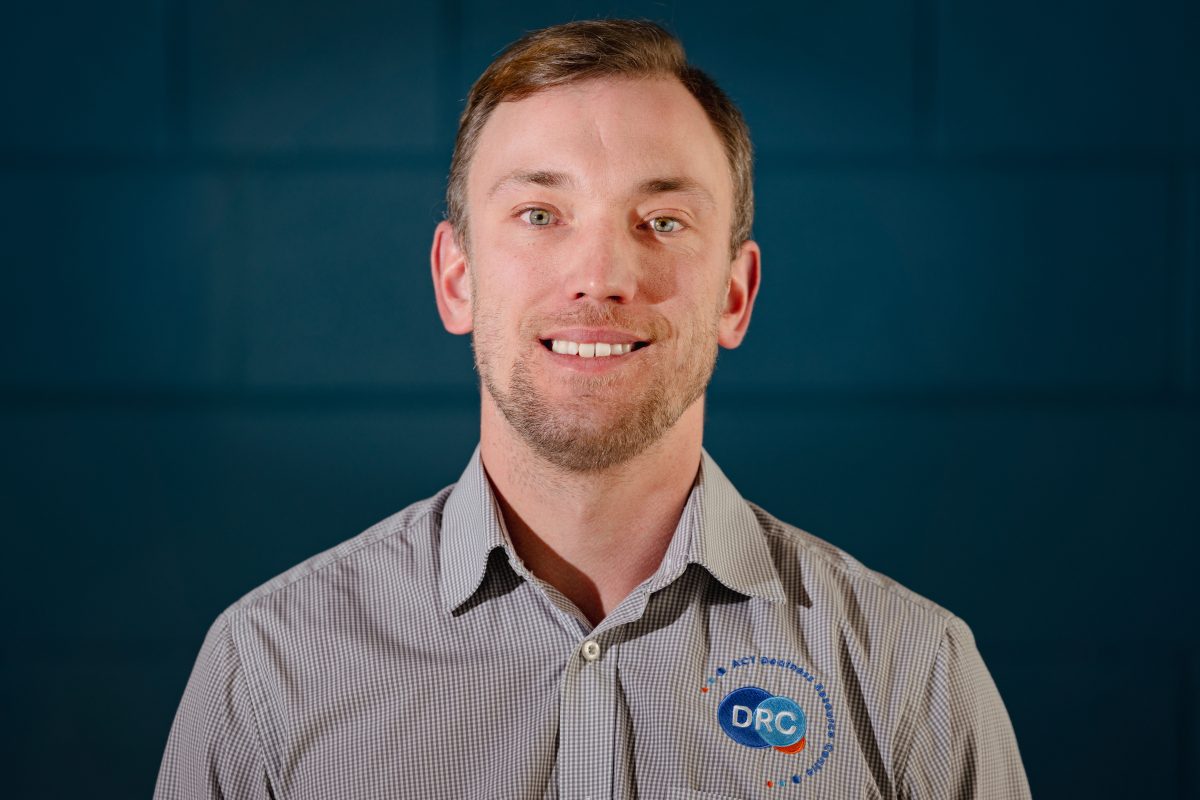
Joe Symons says hearing loss doesn’t affect a person’s work performance. Photo: Liv Cameron.
One in six Australians have some form of hearing loss, but Parbery managing partner Kylie Burnett said it was no reflection on their abilities, given the proper tools and workplace culture.
Corporate deafness awareness training joined a suite of mandatory courses the company wanted to introduce that was “less about operations and compliance and more about valuing people as a whole”.
“It’s about understanding, acknowledging and appreciating that we all have these many facets of who we are, what we do, what’s important to us outside of work, that make up who we are as whole people,” she said.
“Part of that is helping staff understand what they can do to educate themselves and be better peers.”
Kylie said the training was low-hanging fruit for companies to embrace an inclusive and diverse culture and garner peace of mind.
“It’s so nice to know the way we communicate with Stephen is helpful rather than just what we assume is best,” she said.
“We can make a choice to do better.”
Kylie said where possible, training delivered or created from lived experience was best – something provided in this case by DRC’s Joe Symons, who lives with severe hearing loss.

Parbery Consulting managing partner Kylie Burnett said hearing loss did not reflect a person’s abilities, given the proper tools and workplace culture. Photo: Parbery.
He said the techniques laid out in the course he designed were simple to adopt.
“Most people simply aren’t aware of the small provisions and changes that can make a world of difference to someone with hearing loss,” he said.
“Things like making sure your mouth is visible when having discussions, bringing up what you’re going to talk about first and letting the person know you’re talking to them, especially in group settings.
“When workmates do undergo this training, it flicks a switch in their brain. And if companies can make these changes, they can unlock a pool of capable and gifted employees.”
Joe said these days hearing loss shouldn’t affect a person’s work performance.
“There are ways to get around it, and it’s an important factor of inclusion and job satisfaction in the workplace for a person with hearing loss,” he said.
“It can also send a powerful message to all employees and prospective employees about the kind of workplace you strive to be.”
For more information contact ACT Deafness Resource Centre.
